Assigning general tasks and specific tasks and solutions to ministries, branches and localities, Prime Minister Pham Minh Chinh clearly stated that developing the semiconductor sector is a strategic breakthrough and also a key task, something that needs to be done, must be done and is determined to be done, on the basis of Vietnam's distinct potential, outstanding opportunities, competitive advantages and strategies.
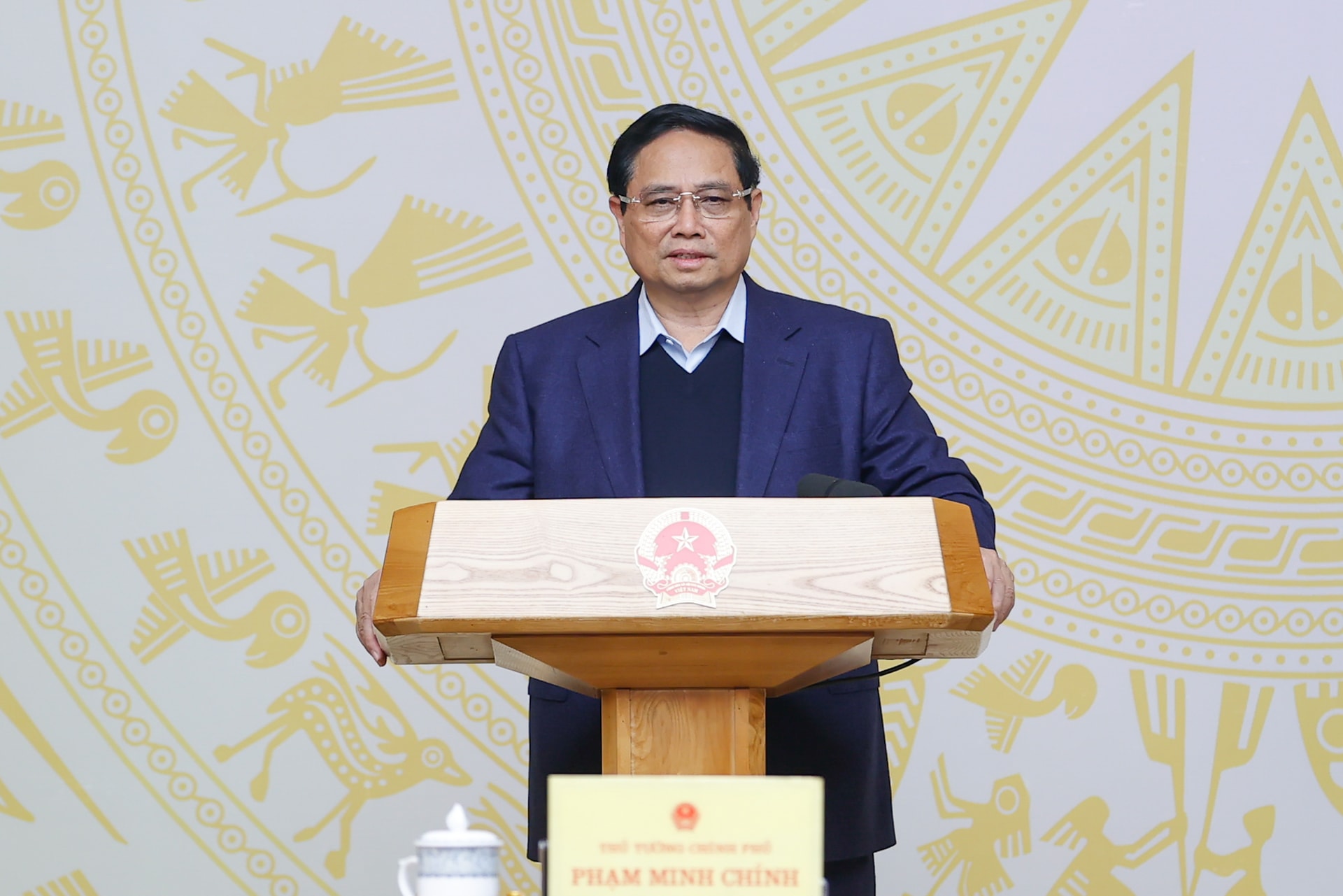
On the morning of December 14, at the Government headquarters, Prime Minister Pham Minh Chinh, Head of the National Steering Committee for Semiconductor Industry Development, chaired the first meeting of the Steering Committee.
Also attending were: Politburo member, Permanent Deputy Prime Minister Nguyen Hoa Binh; Party Central Committee member, Deputy Prime Minister, Minister of Foreign Affairs Bui Thanh Son; Party Central Committee members, leaders of ministries, branches, localities, a number of high-tech zones, educational and training establishments, and relevant business associations.
Reports and opinions at the evaluation meeting stated that recently, Vietnam has emerged as an attractive destination for investors in the semiconductor industry. In the semiconductor industry value chain, Vietnam is currently participating in the following stages: Design, testing, packaging of microchips, manufacturing of semiconductor-related equipment and materials, but does not have a chip manufacturing plant.
Currently, Vietnam has more than 50 chip design enterprises with an estimated workforce of more than 6,000 engineers, 7 testing and packaging factories with about 6,000 engineers and more than 10,000 technicians; enterprises manufacturing equipment and materials for the semiconductor industry have also begun operations. Vietnam currently has 174 FDI projects in the semiconductor sector with a total registered capital of nearly 11.6 billion USD.
Delegates assessed the above results as evidence of the efforts and drastic actions of leaders at all levels, especially the Government, Prime Minister, ministries, localities, training institutions and the business community in the development of the semiconductor industry...
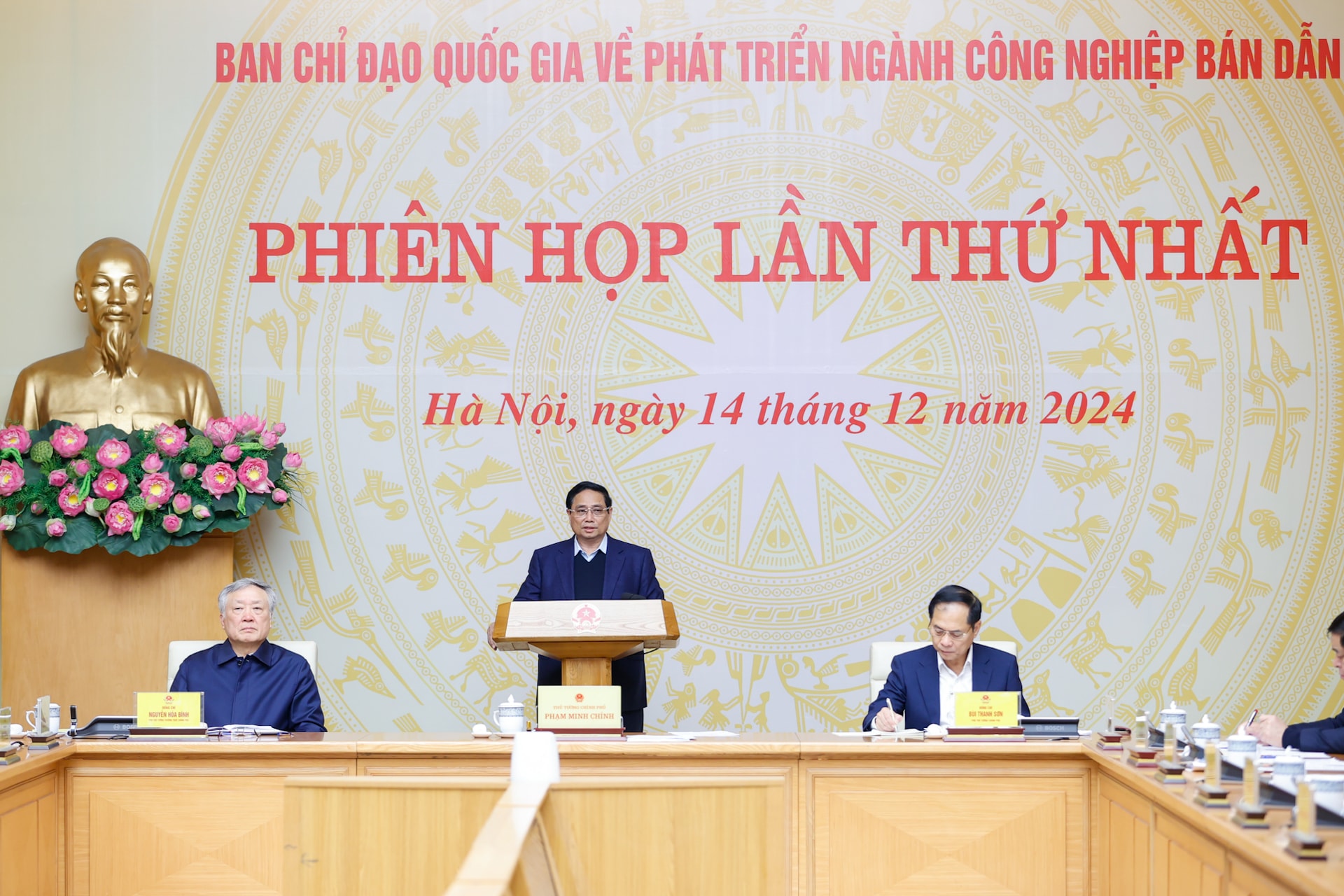
Developing creative economy to create new productive forces
In his concluding remarks, Prime Minister Pham Minh Chinh assigned the Government Office and the Ministry of Planning and Investment - the standing agency of the Steering Committee - to fully and reasonably absorb the opinions of the Steering Committee members and delegates, promptly complete and issue the Notice of Conclusion of the Meeting for unified implementation.
Emphasizing some additional contents, analyzing the context, situation and requirements for developing the semiconductor industry, the Prime Minister stated that developing the semiconductor industry is an objective requirement, a strategic choice and a top priority.
In the coming period, we must achieve two 100-year goals (by 2030, we will celebrate the 100th anniversary of the Party's founding and by 2045, we will celebrate the 100th anniversary of the country's founding), which requires breakthroughs, especially in economic growth.
According to the Prime Minister, to promote growth, along with renewing traditional growth drivers such as investment, export, and consumption, it is necessary to promote new growth drivers such as digital transformation, green transformation, circular economic development, smart economy, knowledge economy, sharing economy, night economy; especially in the fields of semiconductors, artificial intelligence, internet of things, cloud computing, and creative economic development to create new productive forces, with the spirit of "keeping up, progressing together, and surpassing".
Vietnam has strategic advantages in developing the semiconductor industry with the world's second largest rare earth reserves, an extremely favorable geographical location (located in the center of the region that accounts for 70% of the global semiconductor industry's production output), abundant human resources and great potential (1 of the 16 most populous countries in the world with a high proportion of young people, ranked 44/133 economies in innovation).
Regarding policies and actions that Vietnam has been implementing, the Prime Minister said that our Party has determined to continue comprehensively developing human resources, science, technology, and innovation. Resolution No. 52-NQ/TW dated September 27, 2019 of the Politburo on a number of policies and strategies to proactively participate in the Fourth Industrial Revolution also identified the goal of rapid and sustainable development based on science, technology, innovation, and high-quality human resources.
The Prime Minister has established a Steering Committee; issued the Program for Human Resource Development in the Semiconductor Industry to 2030, with a vision to 2050; Strategy for Development of Vietnam's Semiconductor Industry to 2030 and a vision to 2050; Directive No. 43/CT-TTg on promoting human resource training for the semiconductor industry and some core digital technology industries.
Along with that are policy mechanisms to promote the semiconductor industry in the Capital Law, Resolutions to pilot a number of specific mechanisms and policies to develop a number of cities such as Ho Chi Minh City and Da Nang.
In the coming time, we will continue to make breakthroughs in policy mechanisms such as: Establishing an Investment Support Fund; proposing mechanisms and policies in the process of drafting legal documents: Investment Law, Corporate Income Tax Law, Science and Technology Development Fund of Enterprises, preferential policies on personal income tax, etc.
Regarding infrastructure, the National Innovation Center (NIC) has established a public service unit in the economic sector, as well as the Ho Chi Minh City, Hoa Lac, Da Nang High-Tech Parks and many standard industrial parks, which are potential destinations in the process of shifting the semiconductor production chain and attracting FDI capital from large semiconductor technology corporations in the world such as: Amkor, Samsung, Hana Micron, Foxconn, LAM Research, Coherent, Intel.
Vietnam has many good IT enterprises and investors such as Viettel, FPT, Phenikaa, which are implementing development strategies and promoting specific projects in the semiconductor field; potential semiconductor startups such as Infrasen, VnChip, Hyphen Deux are starting to appear.
Regarding international cooperation, a Memorandum of Understanding on cooperation between Vietnam and the United States was signed as well as cooperation programs within the framework of the Innovation and Technology Security Fund (ITSI) on developing the ecosystem and human resources of the semiconductor industry.
Vietnam has proactively organized and connected investment and business through various activities such as the Vietnam Semiconductor Industry Exhibition; inviting and welcoming large technology corporations in the world such as NVIDIA, Samsung, Qualcomm, LAM Research, Marvell, Qorvo to come to learn about the investment environment, aiming to expand production, business and build bases in Vietnam.
Vietnam is strengthening international cooperation, establishing semiconductor cooperation frameworks with partners such as Korea, Japan, India, etc.
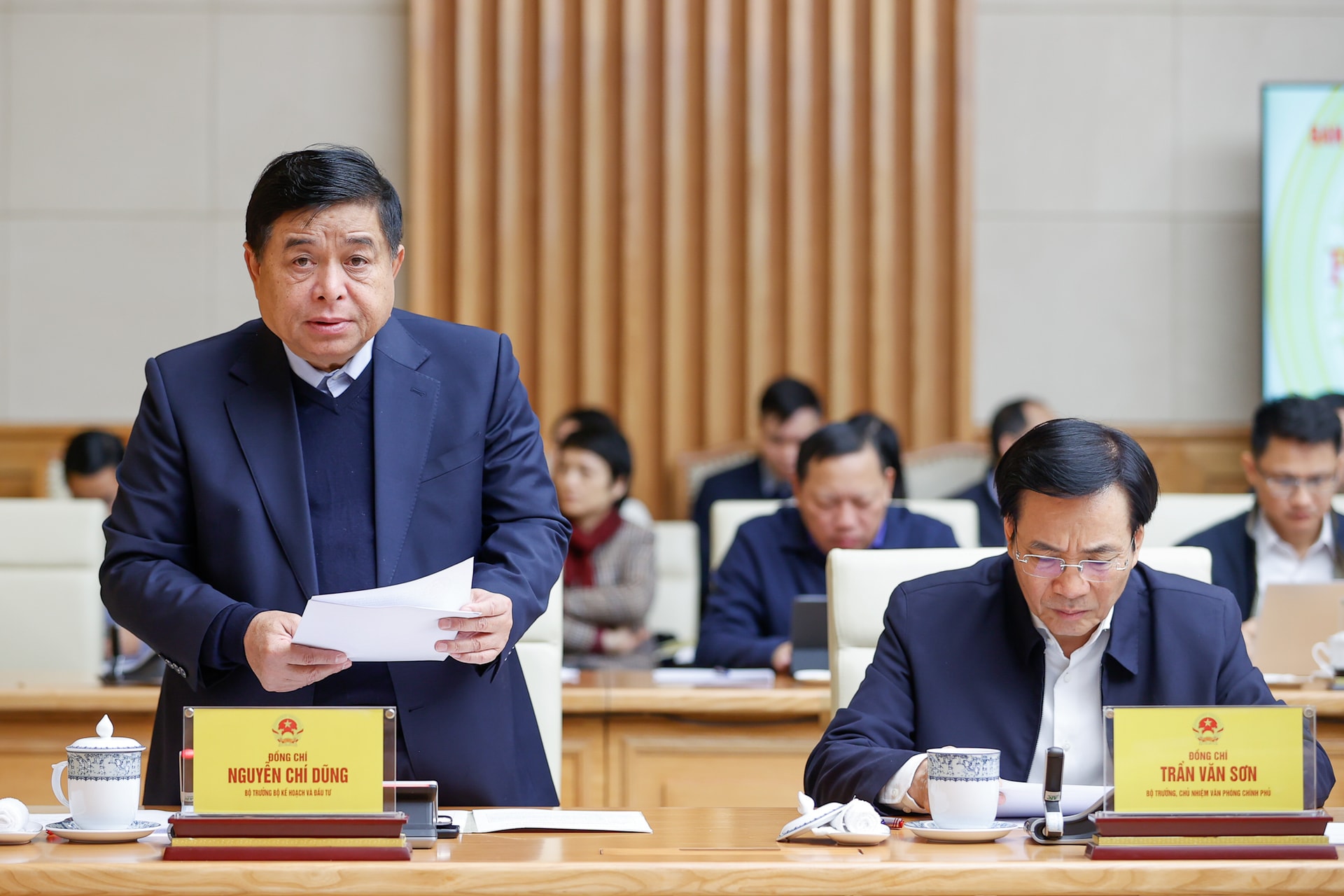
Regarding difficulties and challenges, the Prime Minister said that the demand for investment capital for the semiconductor sector is very large, but the special incentive mechanism to support investment and encourage all organizations and individuals to participate in this sector has not kept up with practical requirements. There are limitations in infrastructure serving research and development, training, incubation as well as serving production and business; Vietnam's electricity supply is not guaranteed in some places and at some times. There are limitations in access to advanced technology and a shortage of high-quality human resources needed to develop this industry...
Promoting semiconductor diplomacy; technology transfer and mastery
In the coming time, the Prime Minister requested ministries, branches and localities to carry out assigned tasks according to their functions, tasks and powers, especially implementing the "Human resource development program for the semiconductor industry to 2030, with a vision to 2050" and "Semiconductor industry development strategy to 2030".
Regarding viewpoints, the Prime Minister emphasized that "The Party has directed, the Government has agreed, the National Assembly has agreed, the people have supported, the Fatherland has expected, then only discuss action, not retreat". There are specific steps, roadmaps, and directions, clear people, clear work, clear time, clear responsibilities, clear results; promote the responsibility of the leader, high determination, great efforts, drastic actions, with focus and key points; do each task and finish it.
Along with that, we need to strengthen decentralization and delegation of power along with resource allocation, improve the capacity of subordinates, and link it with inspection, supervision and control of power; the implementation process must check, urge, replicate good models, and review places that have not done well. Strengthen communication and create consensus in society on the development of the semiconductor industry.
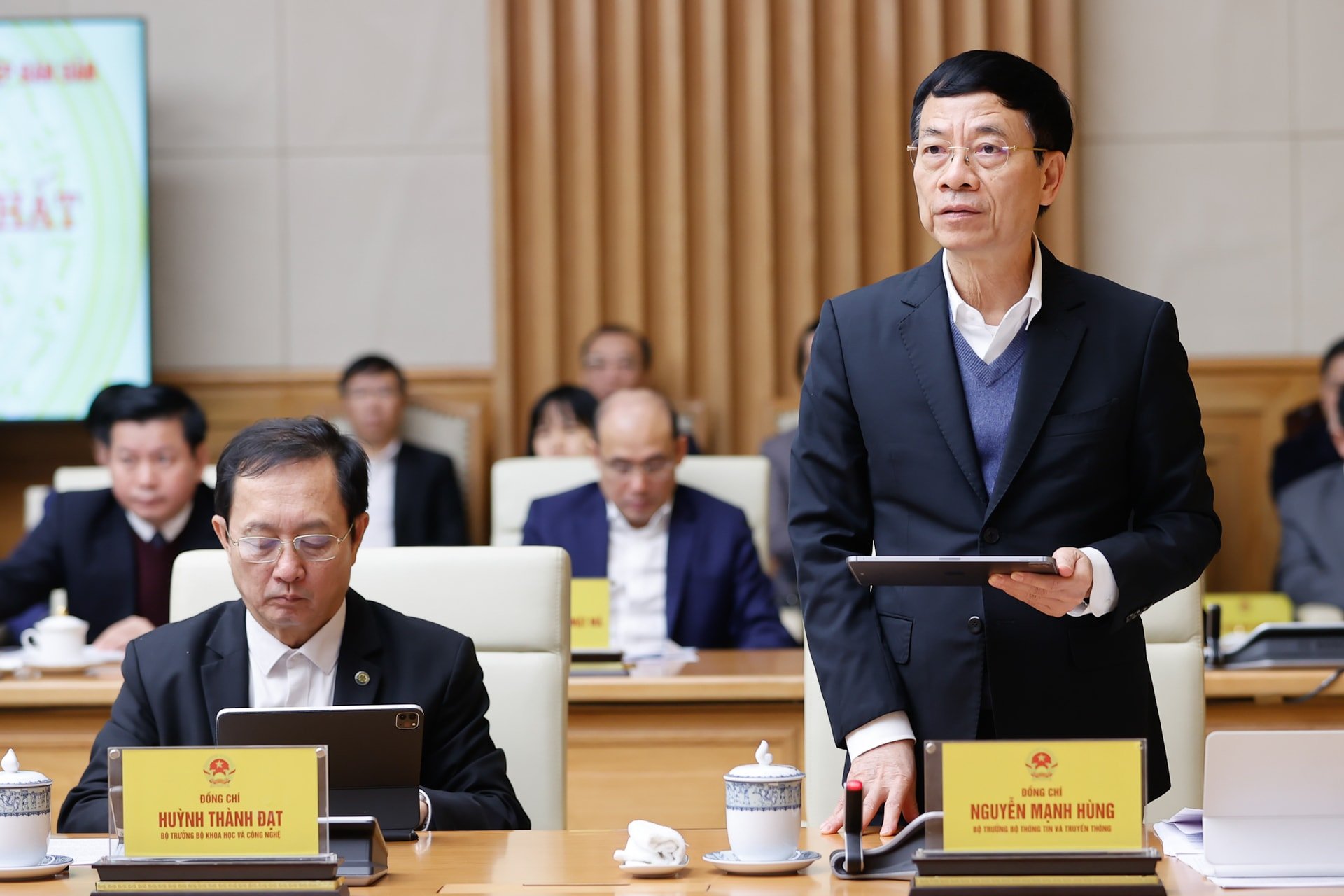
Regarding the common and key tasks, the Prime Minister stated that it is necessary to raise awareness with a strategic vision and breakthrough thinking about the position, role and importance of the semiconductor, artificial intelligence, internet of things and cloud computing sectors; continue to perfect open institutions, with priority given to selected industries; develop synchronous and smooth infrastructure, especially transport infrastructure, digital infrastructure, innovation infrastructure, electricity infrastructure, etc. to reduce costs for businesses and investors, improve labor productivity and competitiveness; have mechanisms and policies for training and attracting high-quality human resources; build a smart governance and management system; promote the early establishment of the Investment Support Fund; further promote research, technology transfer and mastery; continue to promote semiconductor diplomacy, have favorable and suitable visa policies; quickly develop chip design, testing and packaging centers; participate in the global value chain of large corporations; Develop this field on the basis of Vietnam's distinct potential, outstanding opportunities, and competitive advantages in terms of geographical location, people, political stability, and harmonious and balanced development in relations with major countries.
The Prime Minister noted that developing human resources, institutions and infrastructure for the semiconductor industry is a comprehensive strategy; it must be implemented and invested in to match the strategic breakthrough. Promote administrative procedure reform, promptly direct the removal of difficulties, obstacles and barriers in administrative procedures and processes for production and business activities in the semiconductor sector.
Along with that, promote public-private cooperation, domestic and international cooperation, open up and utilize all resources for training and developing human resources to serve the semiconductor industry. Cooperate in the spirit of "listening and understanding together"; "sharing vision and action together"; "working together, winning together, enjoying together and developing together"; "harmonizing benefits, sharing risks".
Assigning specific solutions and tasks to ministries, branches and localities, the Prime Minister requested the Ministry of Planning and Investment to continue focusing on promoting the implementation of tasks and solutions in the Semiconductor Industry Human Resources Development Program to 2030, with a vision to 2050. Quickly complete and submit to the Government the Decree on the Investment Support Fund, in order to encourage and attract investors around the world and support domestic enterprises.
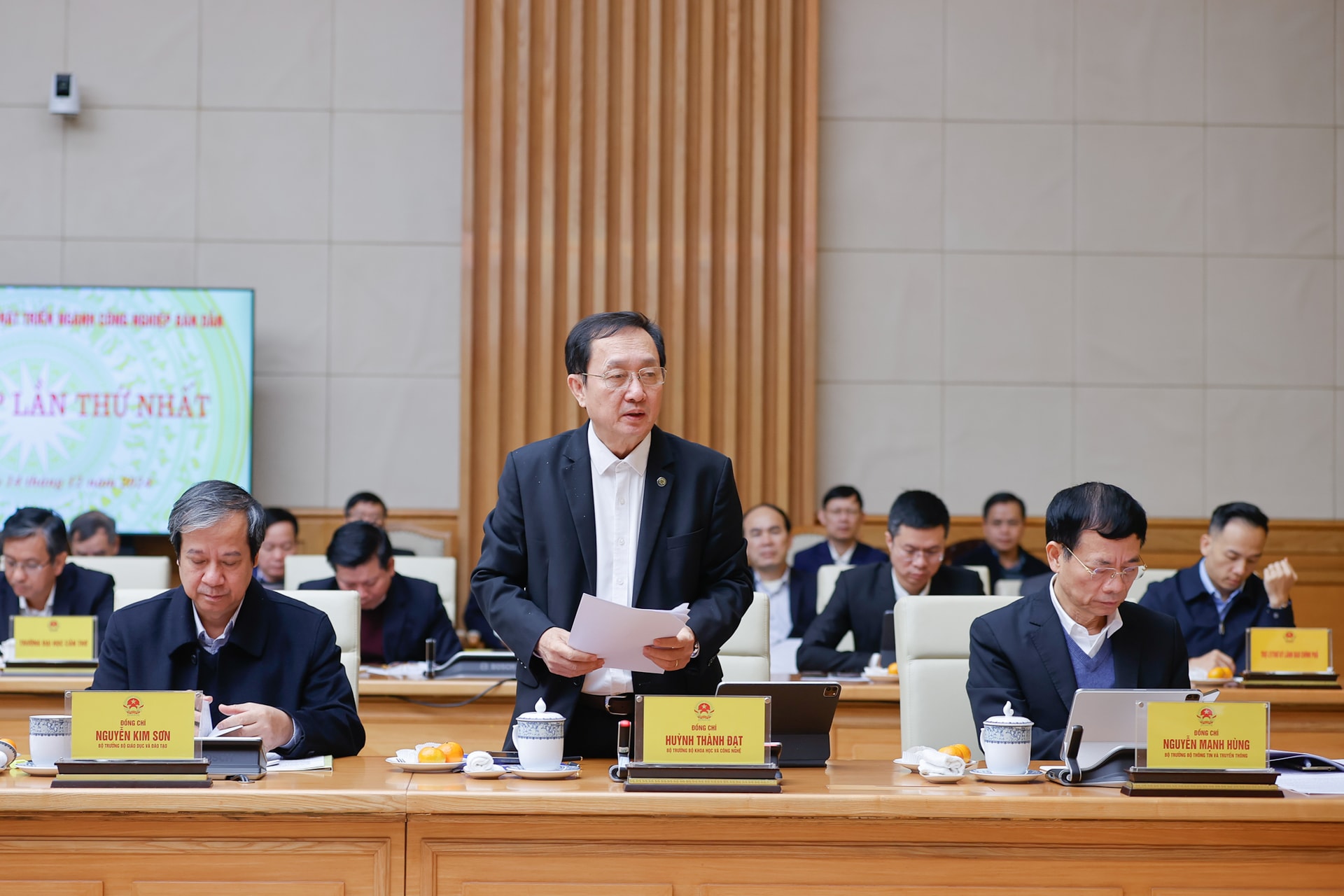
The Ministry of Information and Communications continues to focus on and promote the implementation of tasks and solutions of the Vietnam Semiconductor Industry Development Strategy to 2030 and vision to 2050, especially specific task groups to develop specialized chips; develop the electronics industry.
The Ministry of Foreign Affairs develops a "Project to promote international cooperation to mobilize resources for the development of Vietnam's semiconductor and electronics industry". Research, develop and submit to competent authorities to sign international cooperation agreements on semiconductors with a number of leading countries and economies in semiconductors; strengthen bilateral and multilateral cooperation on semiconductors.
Continue to leverage the network of Vietnamese representative agencies abroad to promote international cooperation in the semiconductor and electronics industries, and identify priority areas for cooperation with each partner. Continue to complete the database of Vietnamese experts and intellectuals abroad and educational training institutions and universities abroad, and have a plan to approach, promote, and connect effective cooperation with Vietnam.
The Ministry of Industry and Trade ensures the security of electricity supply, absolutely does not allow power shortages, and meets the needs of the semiconductor industry development. Take the lead and coordinate with the Ministry of Foreign Affairs to lobby relevant US agencies to soon remove Vietnam from the list of restricted high-tech exports, thereby creating more favorable conditions for Vietnam to access advanced US technologies and promote cooperation between businesses of the two countries in high-tech fields, including the semiconductor industry.
The Ministry of Education and Training continues to closely coordinate with the Ministry of Planning and Investment to implement the Program "Developing human resources for the semiconductor industry to 2030, with a vision to 2050", including researching, proposing and implementing a linkage model between the State, schools and enterprises in training human resources for the semiconductor industry to ensure efficiency and quality.
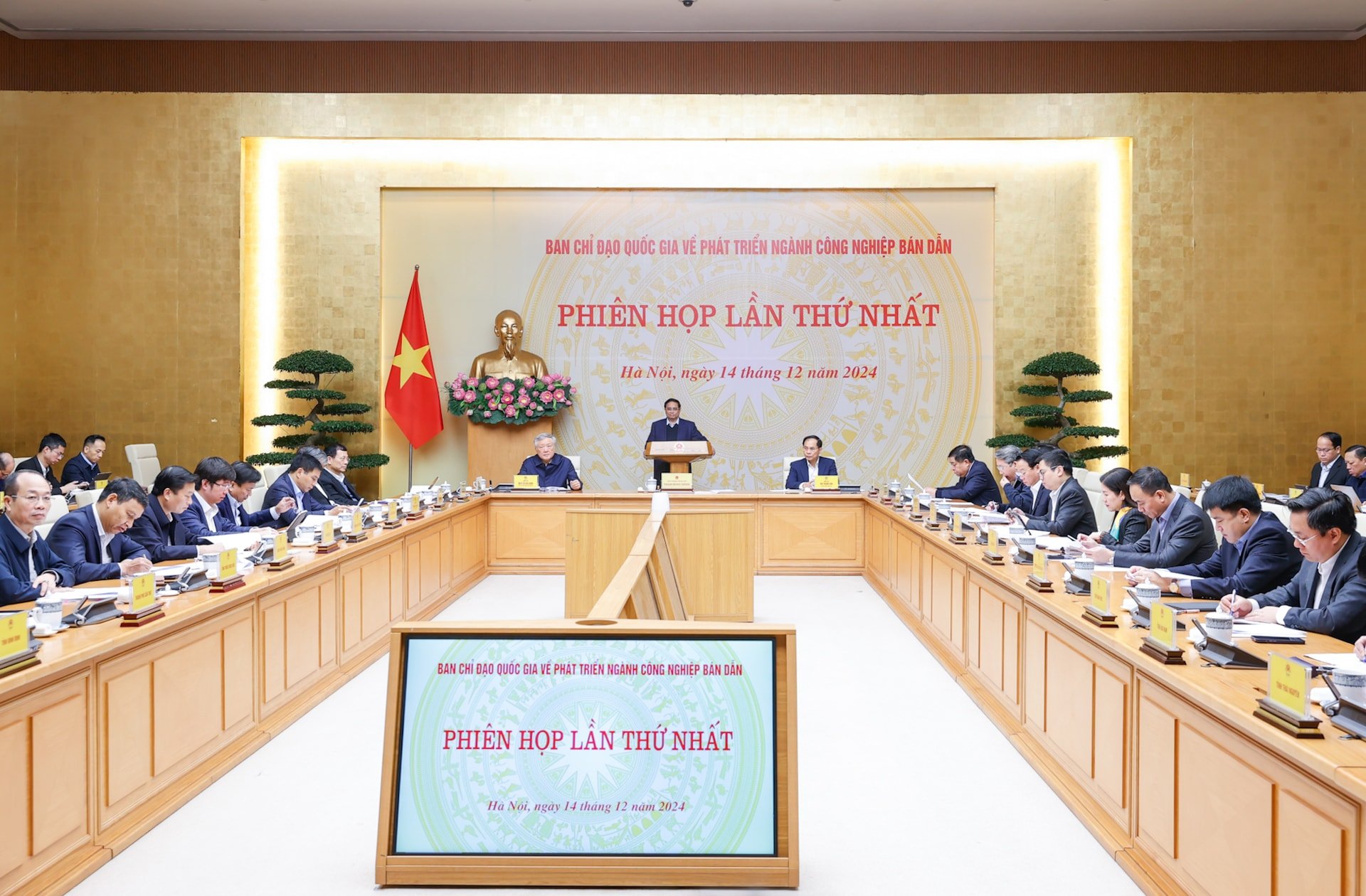
Urgently submit for promulgation the Project "Training human resources to serve high-tech development in the period of 2025-2035 and orientation to 2045" to prepare STEM human resources (Science - Technology - Engineering - Mathematics) with high professional and technical qualifications to meet the needs of expanding investment in developing high-tech fields, including semiconductors, especially a team of talented human resources capable of participating deeply in the research and development stage in a number of key technology fields. Urgently develop and guide the implementation of training program standards on semiconductor microchips.
The Ministry of Finance shall preside over and closely coordinate with the Ministry of Planning and Investment and relevant agencies to research and propose mechanisms and preferential policies on tax, finance, management and use of public assets to serve the training, research and development of the semiconductor industry.
The Ministry of Science and Technology promotes research and development, enhancing Vietnam's science and technology capacity in the semiconductor industry, especially developing core technologies and specialized chip products.
The Ministry of Public Security and the Ministry of Foreign Affairs are researching appropriate and favorable visa policies to develop the semiconductor industry.
Ministries, branches and localities continue to focus on and promote the implementation of tasks and solutions for developing the semiconductor industry according to the policies and orientations for developing the semiconductor industry in the Development Strategy and the Human Resource Development Program for the Semiconductor Industry.
Strengthen cooperation with countries and economies that possess semiconductor manufacturing capabilities, participating in the supply chain of semiconductor products, materials and components. Attract leading enterprises in the world, especially those that play a decisive role in the semiconductor industrial ecosystem, to shift their supply chains to Vietnam, set up offices, build R&D centers and semiconductor laboratories in Vietnam. Work closely with large semiconductor enterprises such as Intel, Samsung, Amkor, Hana Micron. The Prime Minister assessed that FPT Corporation's signing of a comprehensive cooperation agreement with NIVIDA in April this year is also an important milestone, a lesson in international cooperation to promote the rapid, sustainable and comprehensive development of the semiconductor ecosystem.
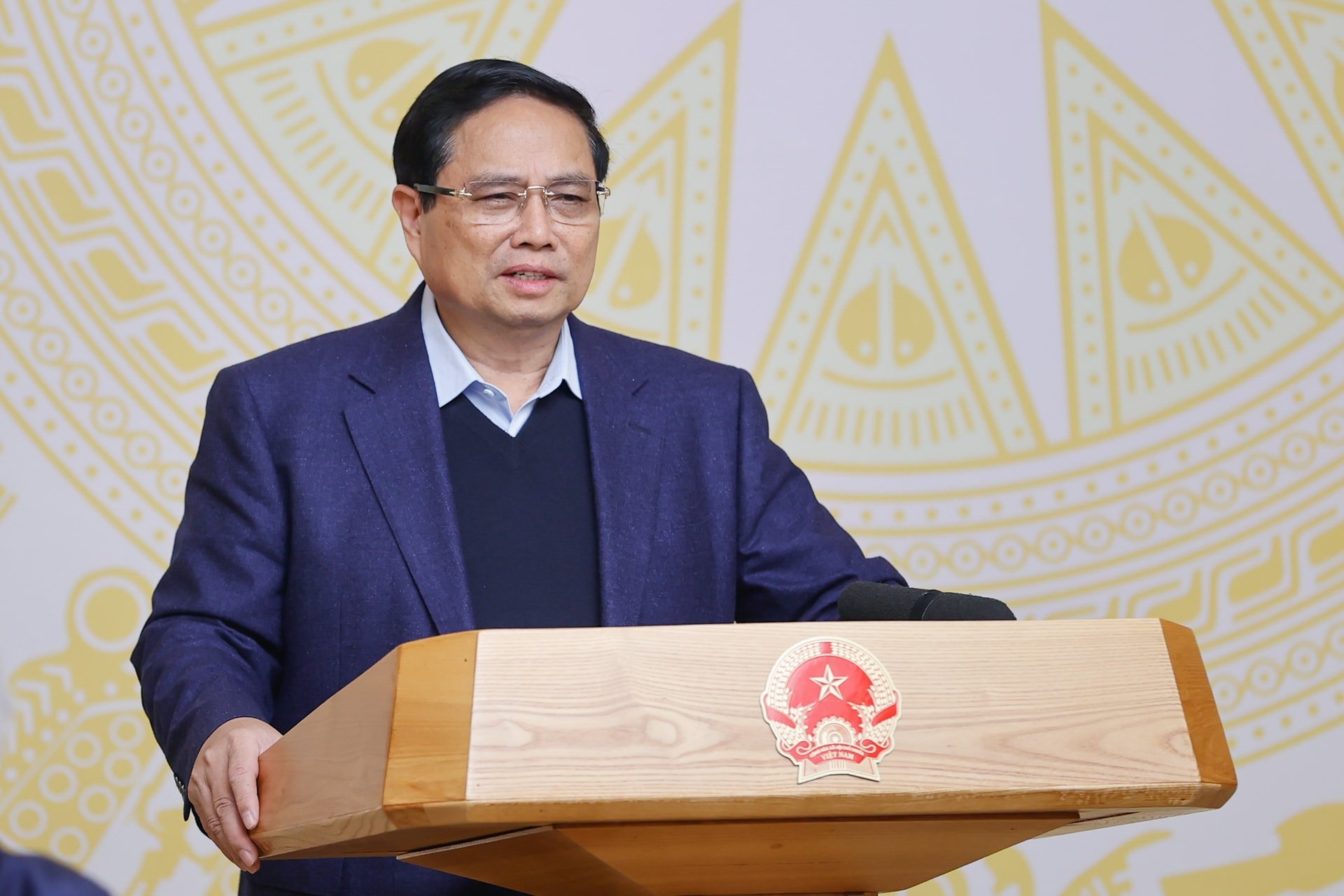
The Prime Minister also requested localities to further strengthen research and consultation on perfecting mechanisms and policies to promote the development of the semiconductor industry and support domestic enterprises to participate in semiconductor development. Provide guidance and direct the prompt handling of support for investors to remove obstacles and difficulties in policies and administrative procedures related to investment and production and business activities such as environmental impact assessment reports, granting fire prevention and fighting licenses, work permits, etc. to create favorable conditions for enterprises to invest in the semiconductor sector. Support for investors must be implemented promptly, consistently, and according to the one-stop mechanism.
Localities should research and select industrial parks with favorable and suitable locations for investment, ensuring synchronous technical infrastructure (especially in terms of providing stable power sources, sufficient capacity, clean water, and wastewater treatment systems) to develop the semiconductor industry; promote neighboring industrial parks and clusters to create industry linkage clusters for the semiconductor industry chain.
The Prime Minister requested ministries, branches and localities to urgently deploy the construction of a railway connecting the center of Hanoi to Hoa Lac and the shortest and most convenient traffic connection between Long Thanh airport (Dong Nai) and Tan Son Nhat airport (HCMC).
The Prime Minister affirmed that developing the semiconductor industry is a necessity, an inevitable requirement, a strategic breakthrough and also our key task in the coming time; it is something that needs to be done, must be done and is determined to be done. Therefore, it requires the participation of the entire political system, the support and participation of people, businesses, investors, and the support of international friends; determination must be demonstrated by specific, systematic, scientific, drastic, focused, key actions, completing each task, producing specific products and results, and being measurable. Only then can we move towards the goal of socio-economic development based on science, technology and innovation, in which the semiconductor industry is one of the key priority areas for development.
The Prime Minister requested the members of the Steering Committee to focus their intelligence, efforts, and resolutely direct and perform the common tasks, powers, and responsibilities of the Steering Committee and the specific tasks, powers, and responsibilities assigned by the Steering Committee to develop the semiconductor industry to achieve the highest goals and results.
Source: https://baotainguyenmoitruong.vn/thu-tuong-viet-nam-co-loi-the-chien-luoc-va-quyet-tam-phat-trien-bang-duoc-nganh-cong-nghiep-ban-dan-384535.html




![[Photo] Prime Minister Pham Minh Chinh holds talks with Prime Minister of the Kingdom of Thailand Paetongtarn Shinawatra](https://vphoto.vietnam.vn/thumb/1200x675/vietnam/resource/IMAGE/2025/5/16/23b5dd1e595d429491a54e3c1548fb79)

![[Photo] Welcoming ceremony for Prime Minister of the Kingdom of Thailand Paetongtarn Shinawatra on official visit to Vietnam](https://vphoto.vietnam.vn/thumb/1200x675/vietnam/resource/IMAGE/2025/5/16/cdd9e93739c54bb2858d76c3b203b437)
![[Photo] The Prime Ministers of Vietnam and Thailand witnessed the signing ceremony of cooperation and exchange of documents.](https://vphoto.vietnam.vn/thumb/1200x675/vietnam/resource/IMAGE/2025/5/16/935407e225f640f9ac97b85d3359c1a5)




![[Photo] Prime Minister Pham Minh Chinh chairs the first meeting of the National Steering Committee on Semiconductor Industry Development](https://vphoto.vietnam.vn/thumb/402x226/vietnam/resource/IMAGE/2025/1/19/24fb59d44c214d8198d1ae790ffd1bdb)

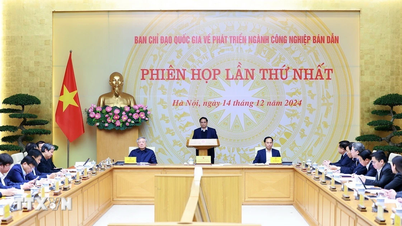
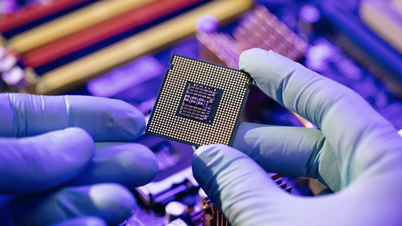

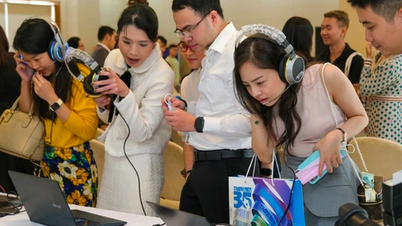

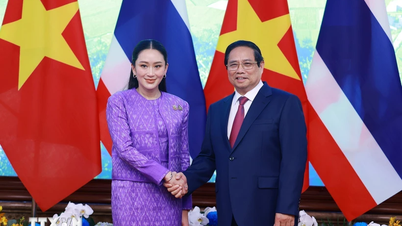
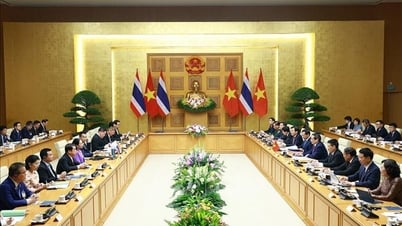

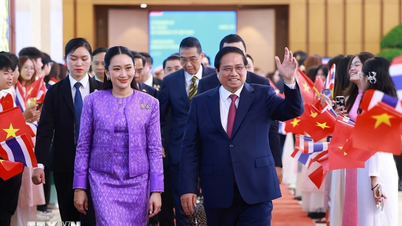

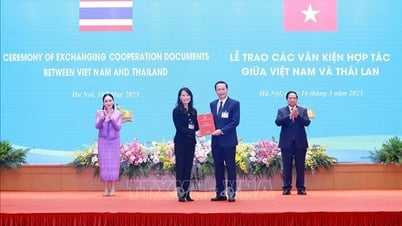

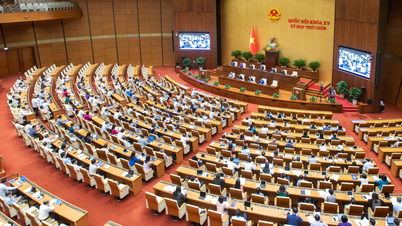

























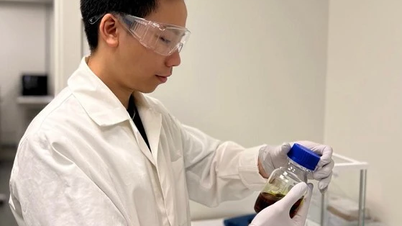
















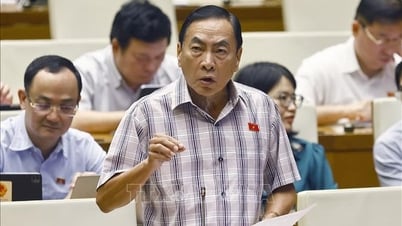
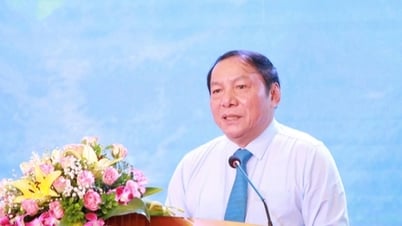


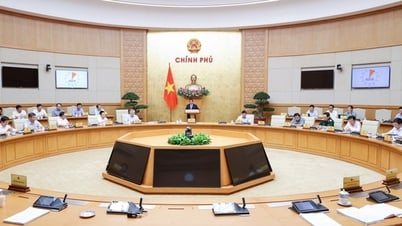
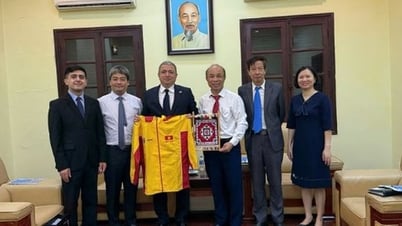
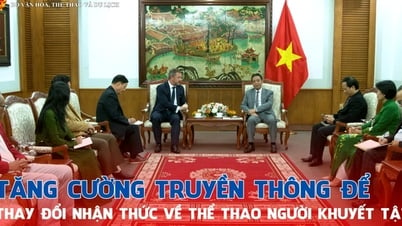
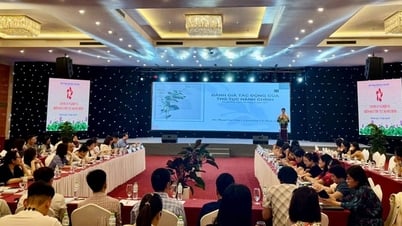
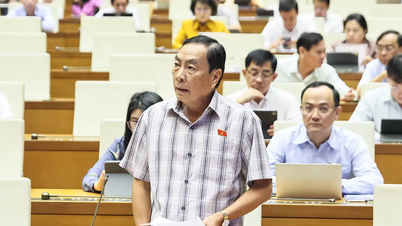


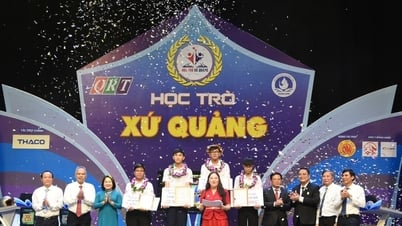




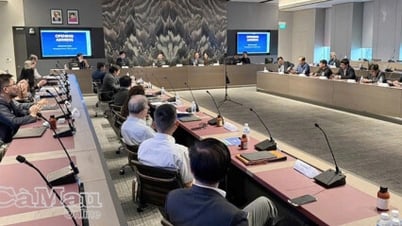










Comment (0)